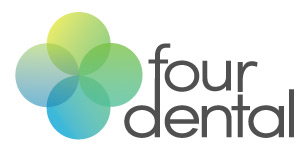What Causes it and How Do You Find Relief?
Dr. Dorothy Gogol-Mach has personal experience with jaw clenching. After years of suffering, she has found relief and it has been life changing. She has had great success helping her patients finally experience comfort.
What Is Jaw Clenching?
Jaw clenching is a condition that causes you to clench your jaws while you sleep, though most of our patients who are clenchers don’t realize that they have this problem. Jaw clenching is also associated with teeth grinding (bruxism) and jaw problems (TMJ).
What Causes Jaw Clenching?
Tension, stress and negative thoughts when you go to sleep all contribute to jaw clenching. If you’re not sure that you’re a clencher, you may be one if you:
- Wake up with a tight jaw or tight shoulder muscles
- Have a sore jaw or sore facial muscles
- Have a headache or neck discomfort
- See chipped, broken or cracked teeth, especially in the back of your mouth
- Feel sensitive or loose teeth
- Realize that you’ve been drooling at night
- Have joint (TMJ) compression
If you have any of these symptoms or if you realize that your back teeth are more sensitive than ever, your jaw clenching may be causing damage to your back teeth.
Jaw clenching occurs when two very powerful muscles, your Masseter and your Temporalis, cause your lower jaw to shut. The Masseter runs from your cheekbone and wraps around your lower jaw, while the Temporalis is a broad, fan-shaped muscle on the side of your head that runs down your temples and cheekbones before attaching to your lower jaw.
Is Relief Possible?
Yes, relief is certainly possible, as Dr. Gogol-Mach can attest. Part of her post-doctoral studies focused on the jaw (TMJ), the bite (occlusion), and head/neck muscles that are all related to jaw movements. She says, “There is a lot we could do to control bruxism. But clenching was a neurological mystery left to those stuck with the problem.”
She tried all types of solutions for jaw clenching, including biofeedback, night guards, orthodontics, Nociceptive Trigeminal Inhibition (NTI), acupuncture, acupressure, massage, chiropractic, and medications –– all with minimal results. Her best results now come from a simple quick procedure placing Botox in the clenching muscles. Her patients have called it, “a lightness of being.”
What Else Can You Do About Jaw Clenching?
There’s a saying about a happy marriage: “Don’t go to bed angry.” The same can be true about jaw clenching because having negative thoughts or being bothered by something is a trigger point for jaw clenching and/or jaw grinding. So talk out any problems before you go to sleep or write them on a pad of paper to relive any pre-bedtime anxiety.
You can also work on relaxing your body from your toes to your head as a form of stress relief or mindful awareness. If your partner is a light sleeper and frequently hears your teeth grinding or your jaws clenching, ask him or her to tap you on the shoulder to let you know what you have been doing.
Want More Advice About Jaw Clenching?
Since 1986, the female dentists at Embarcadero 4 Dental have provided excellence in dentistry by offering the highest quality care in a state-of-the-art office equipped with the latest technology. If you think you might be suffering from jaw clenching, schedule your initial appointment with one of our dentists now.
